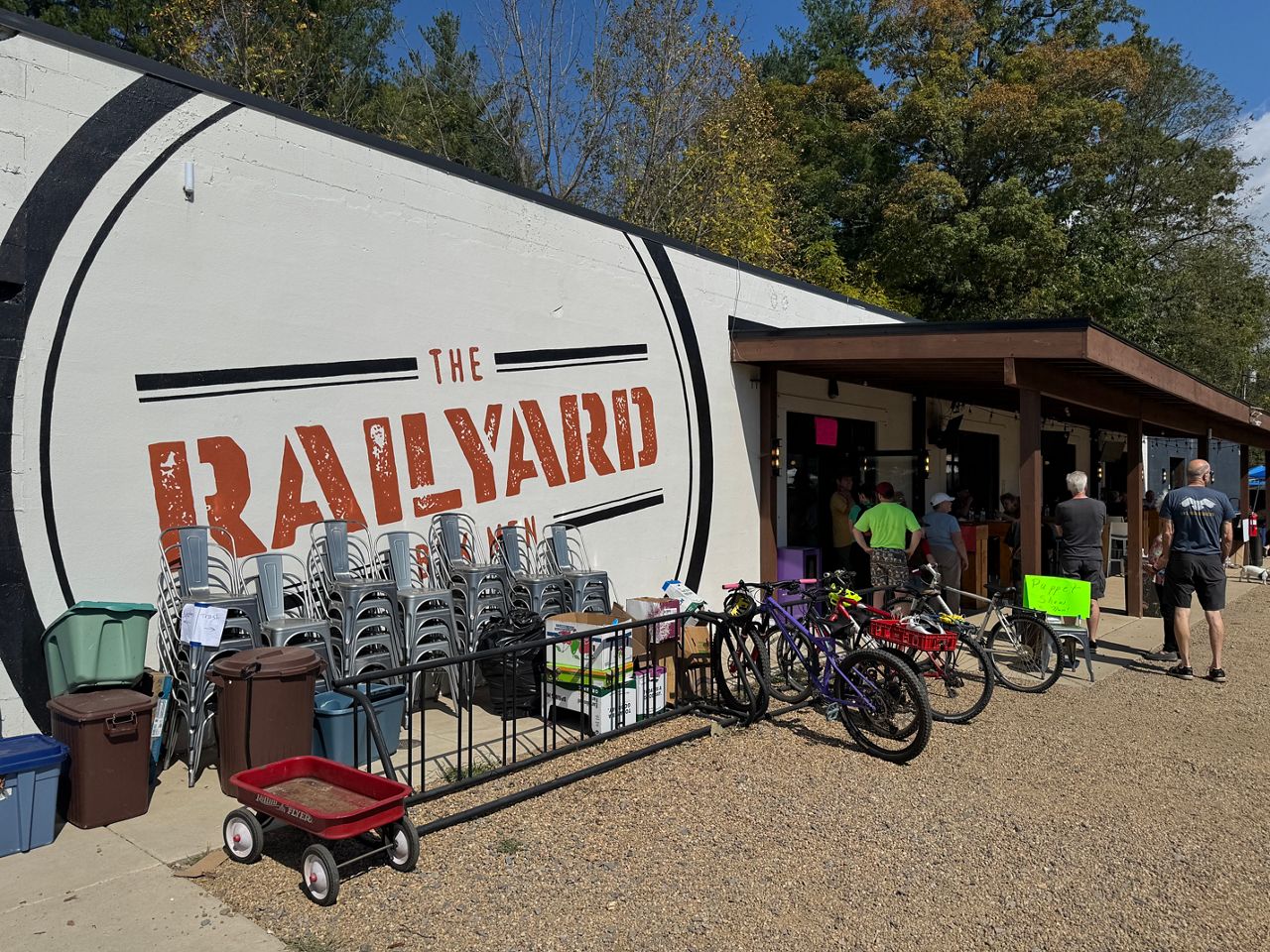BLACK MOUNTAIN, N.C. — Many people have stepped up to help others after Helene devastated western North Carolina, despite their own challenges.
McKenna Palacios is one of them.
She’s been volunteering at the RailYard in Black Mountain in the weeks since the storm hit. The restaurant, bar and event space transformed into a spot for people to drop off and pick up food and supplies and to get a hot meal.

Palacios has helped people get the supplies they need, everything from peanut butter to paper products from the large number of donated items.
Her positivity outweighs the heavy burden so many people in the community now carry.
“Take a breath and just speak kindly, because they're in this same dang boat, and, you know, they may be worse off, you know. I don't know what they're coming from. So, a smile, and if they don't smile back. Well, then, hey, you know, I hope you smile later,” Palacios said.
She maintains her smile, despite her own troubles. She was stuck in her community off of N.C. 9 after the storm hit. She said the area flooded and trees were down, blocking roads.
Palacios said she and her three dogs live a nomadic lifestyle and had just moved into a tiny home converted from a shipping container a day before Helene swept through.
“I'm going to get emotional talking about it, just how everybody came. So, yeah, scary,” she said.
She faced a life-threatening emergency while cut off from others. Palacios said a yellow jacket stung her and she went into anaphylactic shock.
“Not a great time to find out that you’re allergic,” she said.
Palacios and her neighbors had put a car horn honk system in place to alert one another if something was wrong. That proved to be vital.
“I did not want to want to call for help because I knew that a hurricane had just come through, and I was like, ‘If I can breathe, I’ll be OK,’ and then I started vomiting and not even being able to stand up and when the people who heard my honk found me, I was convulsing and my body was rigid,” she said.
Ultimately, a neighbor had an expired EpiPen, she said, which helped.
Palacios is funneling her gratitude into relief work.
"We are building lifelong relationships in the chaos of all of this,” she said. "I just got the goosebumps because I met some amazing people.”
Palacios said several people have commented on her approach to helping them.
"They have used the word ‘inspired’ from my attitude,” she said. "It's weird to hear. It's so cool to hear. I'm not one to like toot my own horn. I'm not trying to, like, but it’s what I needed to hear to keep me going strong through this, so, and keep that smile on my face."
Helene brought destruction and despair for so many, but for Palacios, it brought a calling.
"I’m going to do this the rest of my life. I'll travel for it, you know, like, especially once I get my bus, I'm going to hit the road and I hear the slightest storm come through. I mean, me and my boys, we’re going to roll up and spread cheer. And I can work hard. I'm going to put my body into that work as long as I can,” she said.
Palacios said her nomadic lifestyle has been helpful for giving tips to others who have been without electricity and water. She said she does not own a lot of material things, and it can all be salvaged. Palacios said the only thing anyone can control in this kind of situation is their attitude.
Now, nearly a month after the storm, she continues to spend her time helping people and said volunteers are shifting into a larger scale distribution effort — taking supplies to apartments and mobile home parks.
“Very excited to see what the future holds,” she said.



